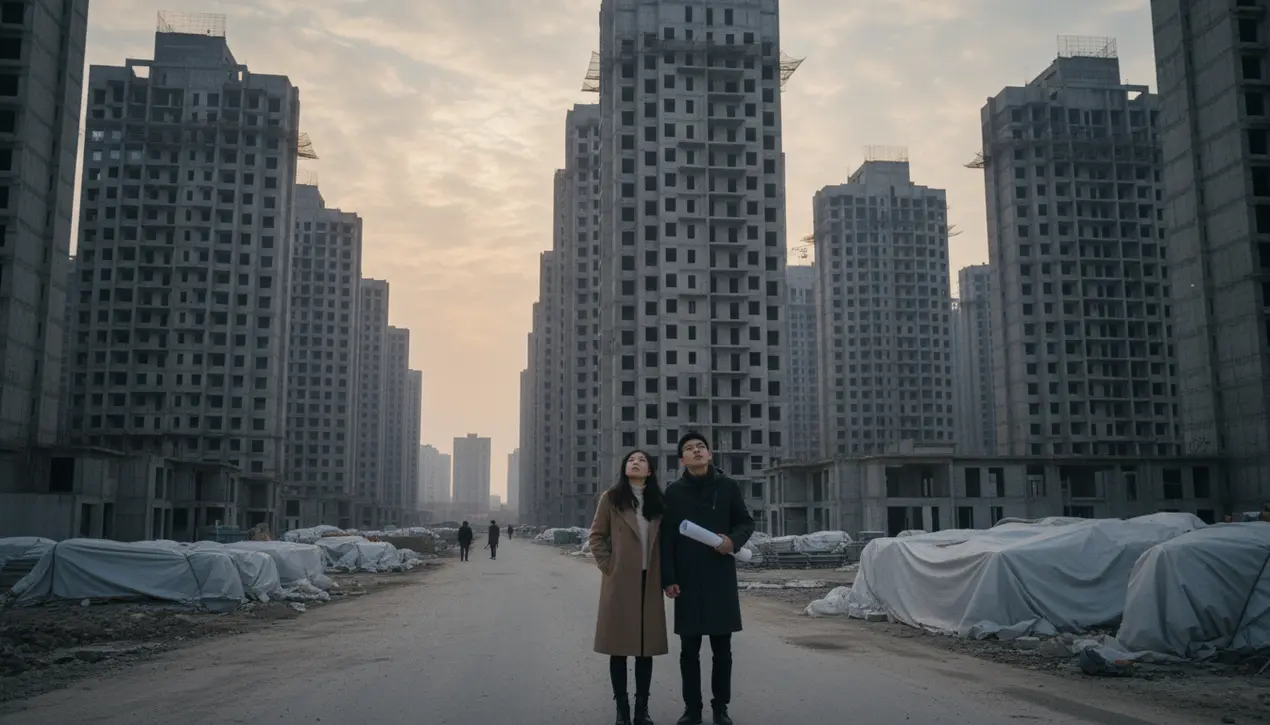
FinancemacroeconomyInflation
China's October Home Prices Fall at Fastest Pace in a Year
OL
Olivia Scott
2 hours ago7 min read
The numbers don't lie, and the latest data from China's National Bureau of Statistics paints a stark picture for the nation's property market, a sector long considered the bedrock of its economic miracle. October, historically a golden month for property transactions, saw new home prices across 70 major cities fall by an average of 0.5% month-on-month, the most precipitous decline since September of last year. This isn't just a seasonal blip; it's the acceleration of a downturn that defies a multi-pronged government rescue campaign, signaling a profound loss of confidence that is rippling through the world's second-largest economy.For an analyst like myself, who watches Wall Street and the Fed with a Warren Buffett-like focus on long-term value and market psychology, this trajectory is deeply concerning. The property sector, intertwined with local government finances, construction, and household wealth, accounts for roughly a quarter of China's GDP.A sustained contraction here is not merely a sectoral issue—it's a systemic risk. The government's support measures, including interest rate cuts and eased purchasing restrictions in some cities, have so far been akin to applying band-aids to a structural wound.The underlying issues—a massive debt overhang from developers like Evergrande and Country Garden, a rapidly aging population that is shrinking the core demographic of first-time homebuyers, and profound uncertainty over job security in a slowing economy—are proving immune to these policy tweaks. This price drop is more than a statistic; it's a reflection of a fundamental shift in the Chinese psyche.The era of believing property values only go up is over. Pre-sales of unfinished homes, once the dominant model, now carry immense risk in the wake of developer defaults, leaving potential buyers rightfully cautious.The wealth effect, where rising home prices fueled consumer spending, is now operating powerfully in reverse, creating a vicious cycle of reduced consumption and further economic slowing. From a macro perspective, this presents a formidable challenge for Beijing's policymakers.More aggressive stimulus, such as direct government purchases of unsold housing stock, is a possibility, but it carries the risk of exacerbating local government debt burdens. Allowing the market to correct more sharply, however, risks social unrest and financial instability.The path forward is a treacherous one, and global markets, particularly those tied to commodity exports like Australia and Brazil, are watching with bated breath. The fate of China's property market is no longer just a domestic story; it is a key variable in the global economic equation for the year ahead.
#China housing market
#real estate prices
#economic slowdown
#government policy
#property sector
#featured
Stay Informed. Act Smarter.
Get weekly highlights, major headlines, and expert insights — then put your knowledge to work in our live prediction markets.
Comments
Loading comments...
© 2025 Outpoll Service LTD. All rights reserved.